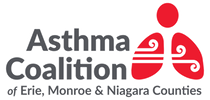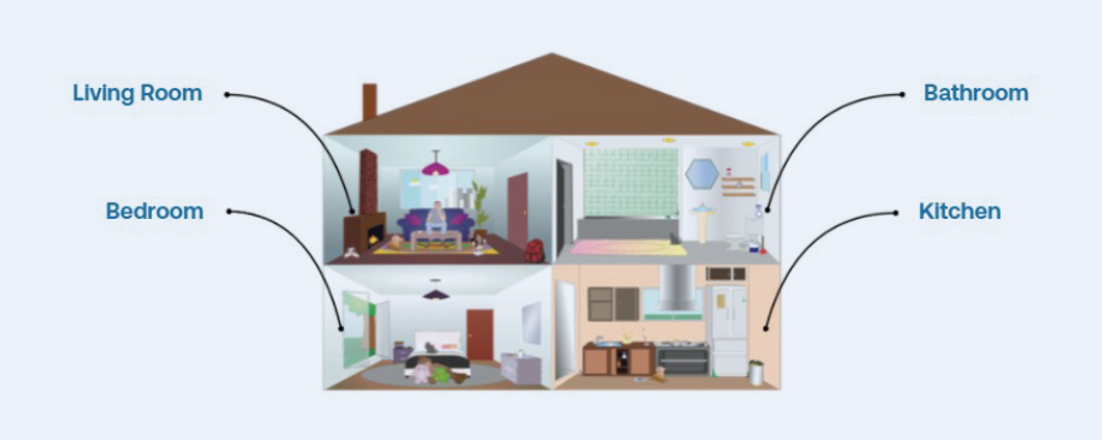Asthma TriggersAn asthma trigger is a thing, activity or condition that makes asthma worse. When you come in contact with a trigger it can cause a sudden worsening of symptoms which is often called an asthma attack, episode or flare-up.
Common asthma triggers include respiratory infections, allergens, irritants, exercise, and emotions. Knowing what causes your asthma symptoms is an important step to controlling your asthma. Allergy testing may help you identify your triggers. Your health care provider can help you recognize what makes your asthma worse, and help find simple solutions to reduce and avoid asthma triggers. Use this tool, the Asthma Trigger House, to find and learn about common asthma triggers in a home. There are four rooms in our house to visit. Click on an item in the room to learn if it is a trigger and how to avoid or reduce the trigger. |
Want to learn more? |
Medical Conditions
Respiratory Infections, such as a cold, flu, or sinus infection, are the most common cause of asthma symptoms leading to an asthma flare-up. Frequent hand washing and avoiding people who are sick will help to reduce your exposure to cold and flu. But, the best way to prevent influenza is to get a flu vaccine every year. To find a flu vaccine near you, visit the Flu Vaccine Finder. Medical conditions such as Acid Reflux can also worsen asthma symptoms.
TRIGGER EXAMPLES • Respiratory Infections (colds, flu, sinus infections) • Pregnancy hormones • Acid Reflux |
Food & Medicines
Asthma can be triggered by food allergies as well as medicines. Discuss any over-the-counter or prescription medicines you take such as aspirin, fever-reducers or anti-inflammatories with your health care provider, along with any alternative therapies or herbal remedies that may have an impact on your asthma.
TRIGGER EXAMPLES • Common food allergies (peanuts and shellfish) • Aspirin • Non-steroidal anti-inflammatory drugs |
Smoke
All types of smoke can make it hard to breathe – including smoke from cigarettes, wood burning fireplaces, burning leaves. If you smoke, you should make a plan to quit. If you don’t smoke, but live with someone who does, discuss ways to avoid or limit your exposure to tobacco smoke. The American Lung Association offers many ways to help smokers quit. Contact the American Lung Association Lung HelpLine at 1-800-586-4872 to speak with a smoking cessation counselor.
TRIGGER EXAMPLES • Cigarette, cigar or pipe smoke • Fireplace, campfire or leaf burning smoke |
Weather, Pollen, & Air Pollution
Changes in the season can bring on an asthma episode due to increasedpollen in the air. Limit your time outdoors during high pollen times of the year such as spring and fall. Also, extreme temperatures (hot and cold) can trigger symptoms of asthma. Be prepared for the weather before you leave your home by checking the pollen count and air quality index.
TRIGGER EXAMPLES • Cold, windy, stormy weather • Sudden or extreme temperature changes • High humidity • Weeds, trees, grass • Air pollution, smog, vehicle exhaust and fumes |
Source: Information for triggers are from the American Lung Association - Click for orginal
|
Asthma Coalition of Erie, Monroe & Niagara Counties is a program of the American Lung Association and made possible by a grant from the New York State Department of Health.
|
Website By Greyson








